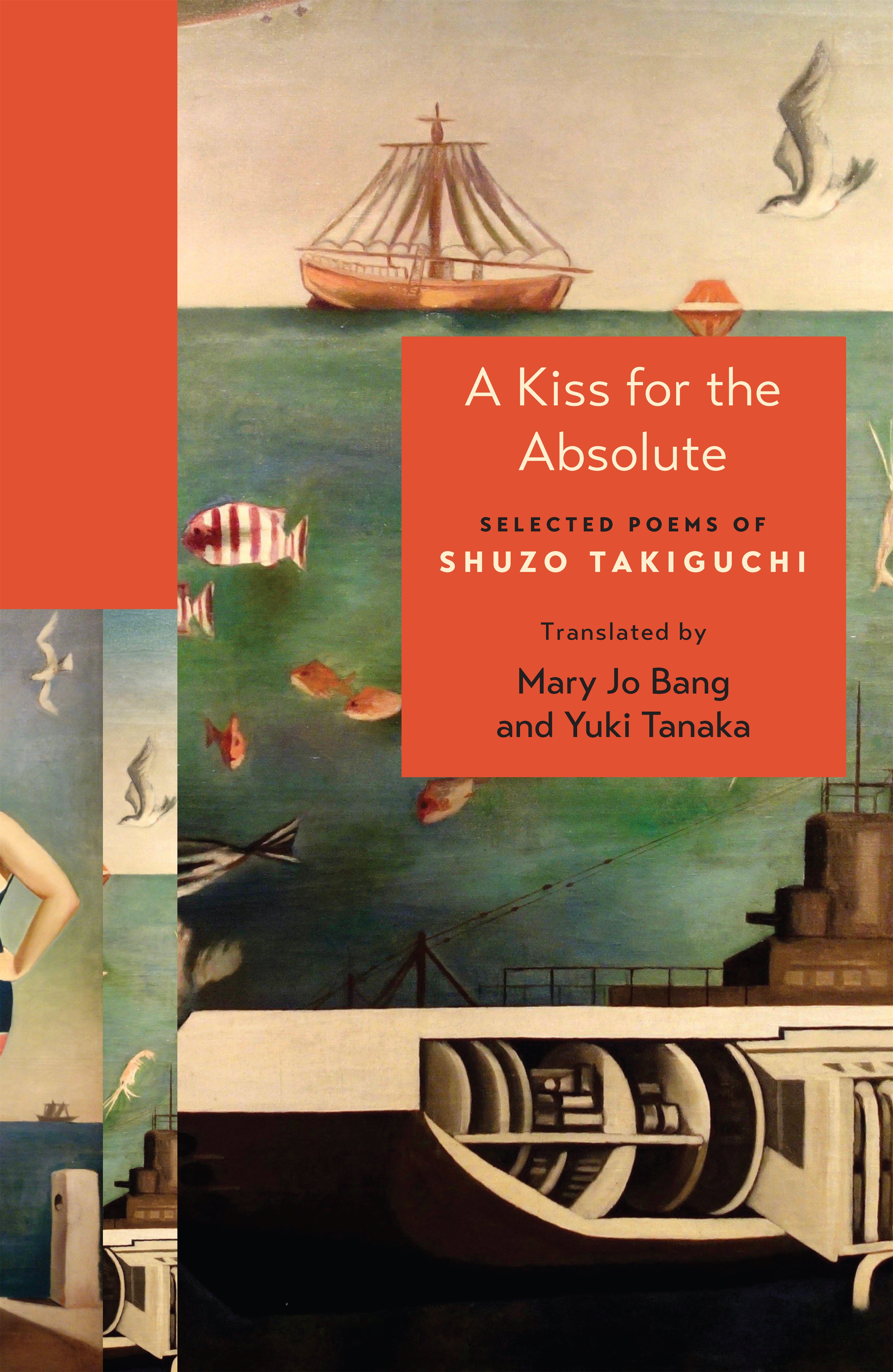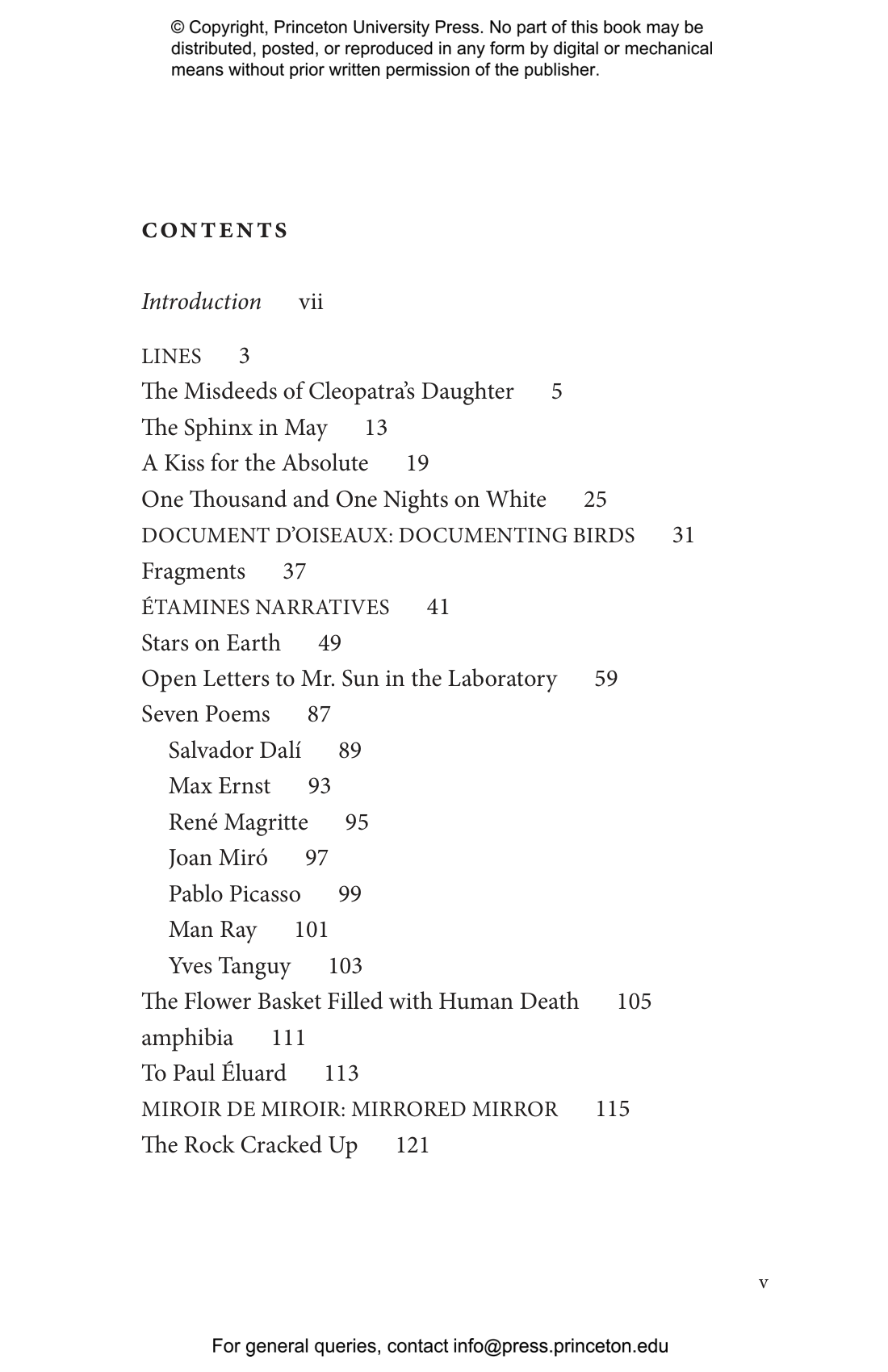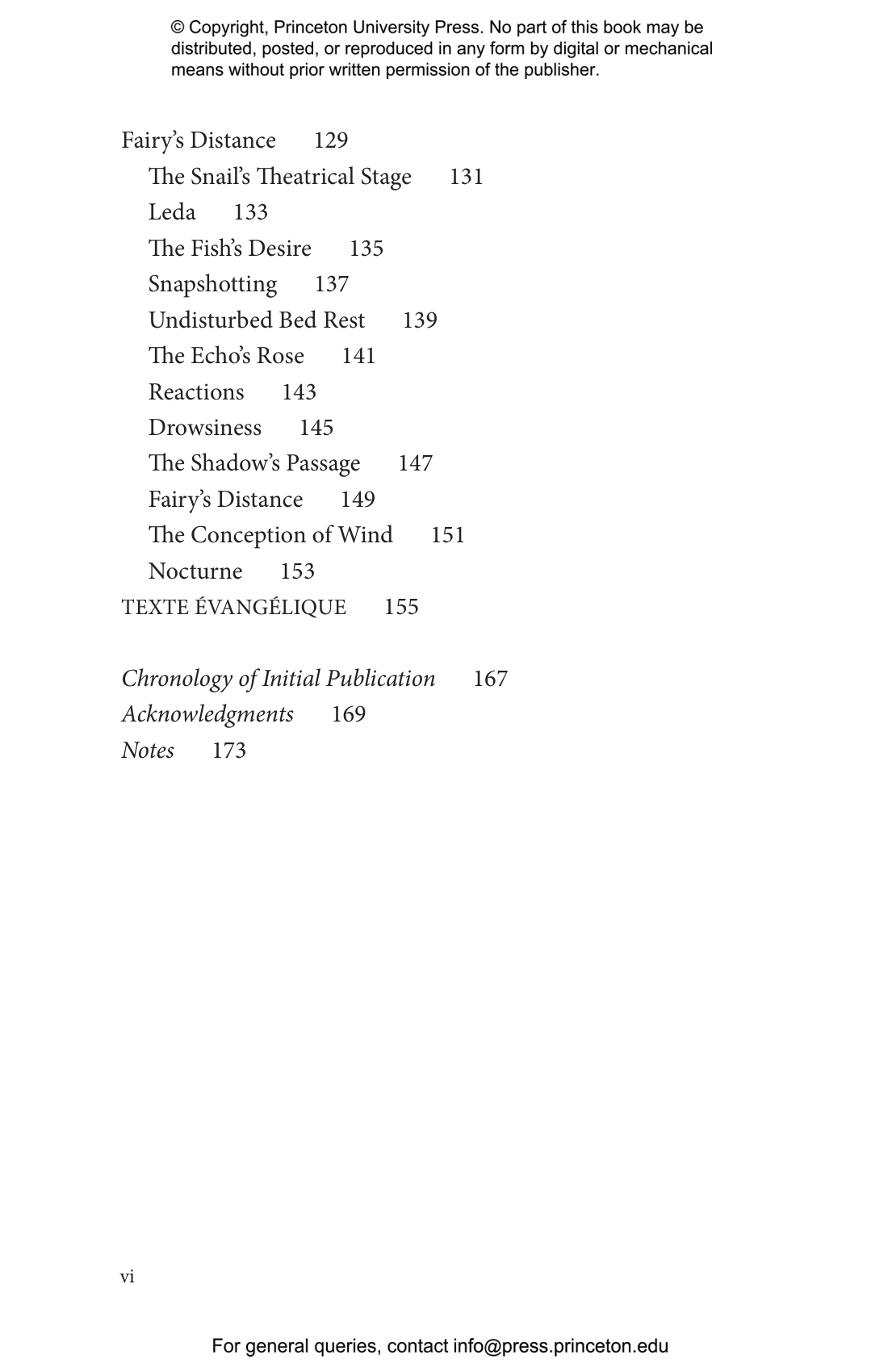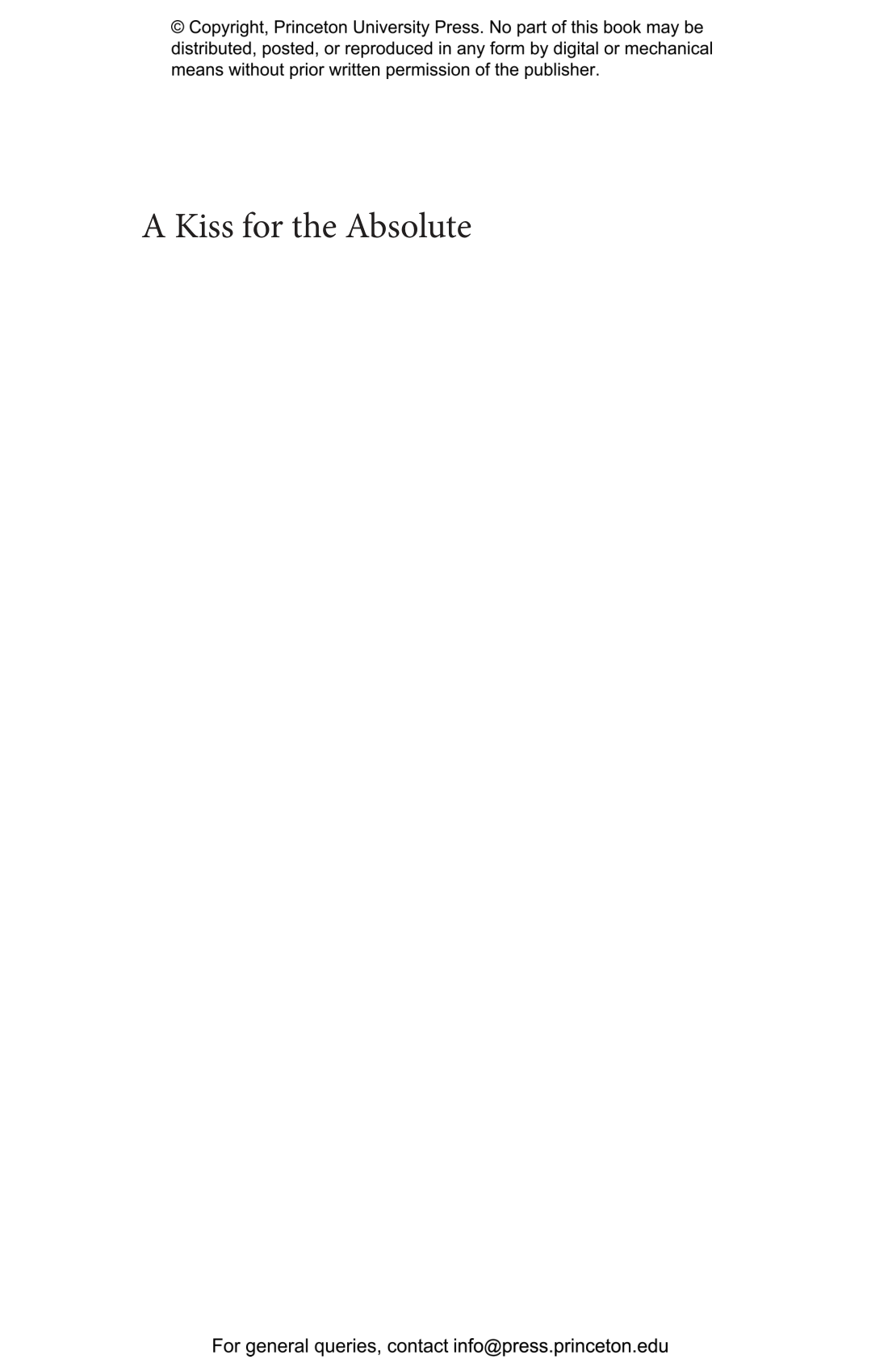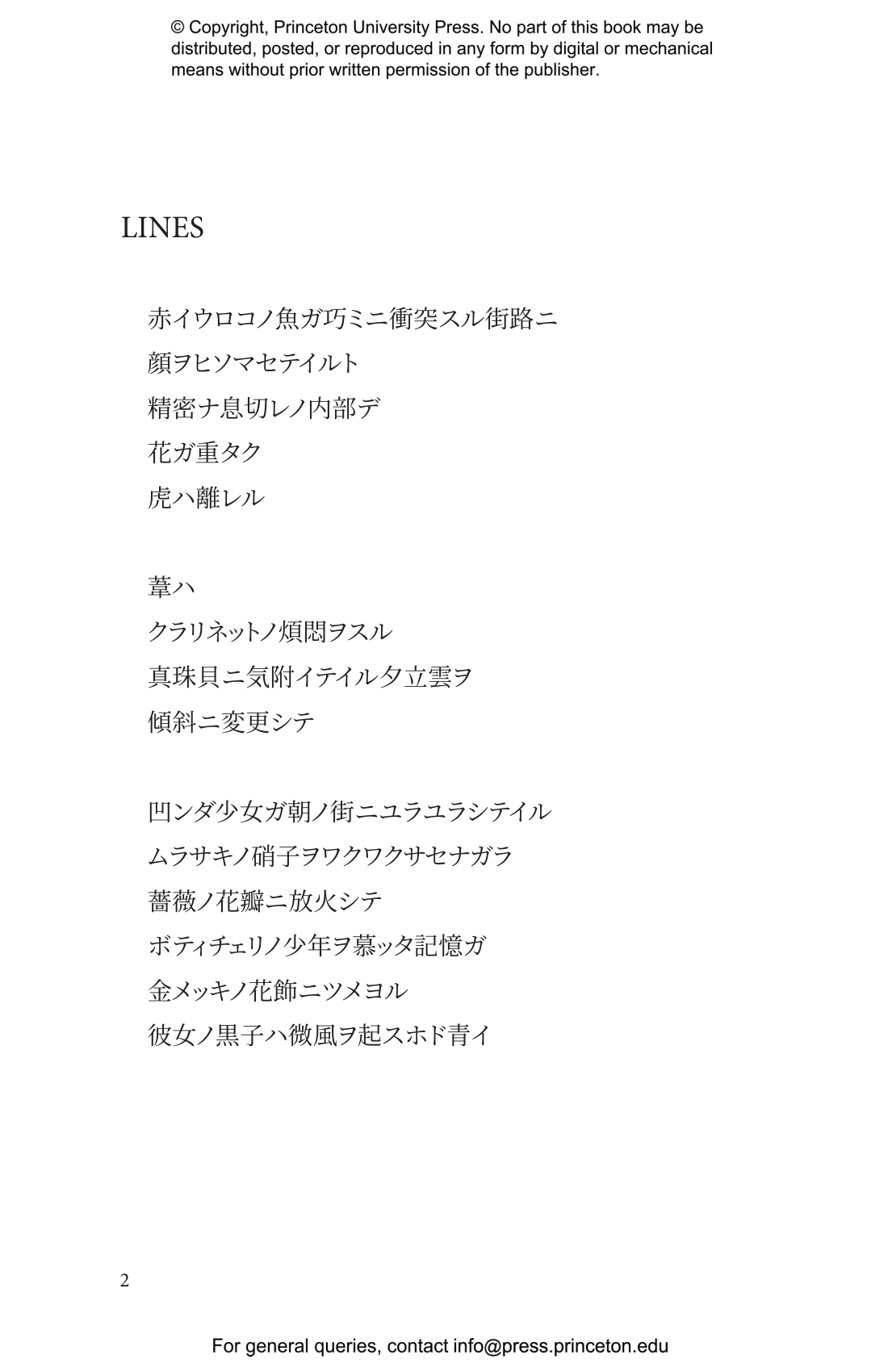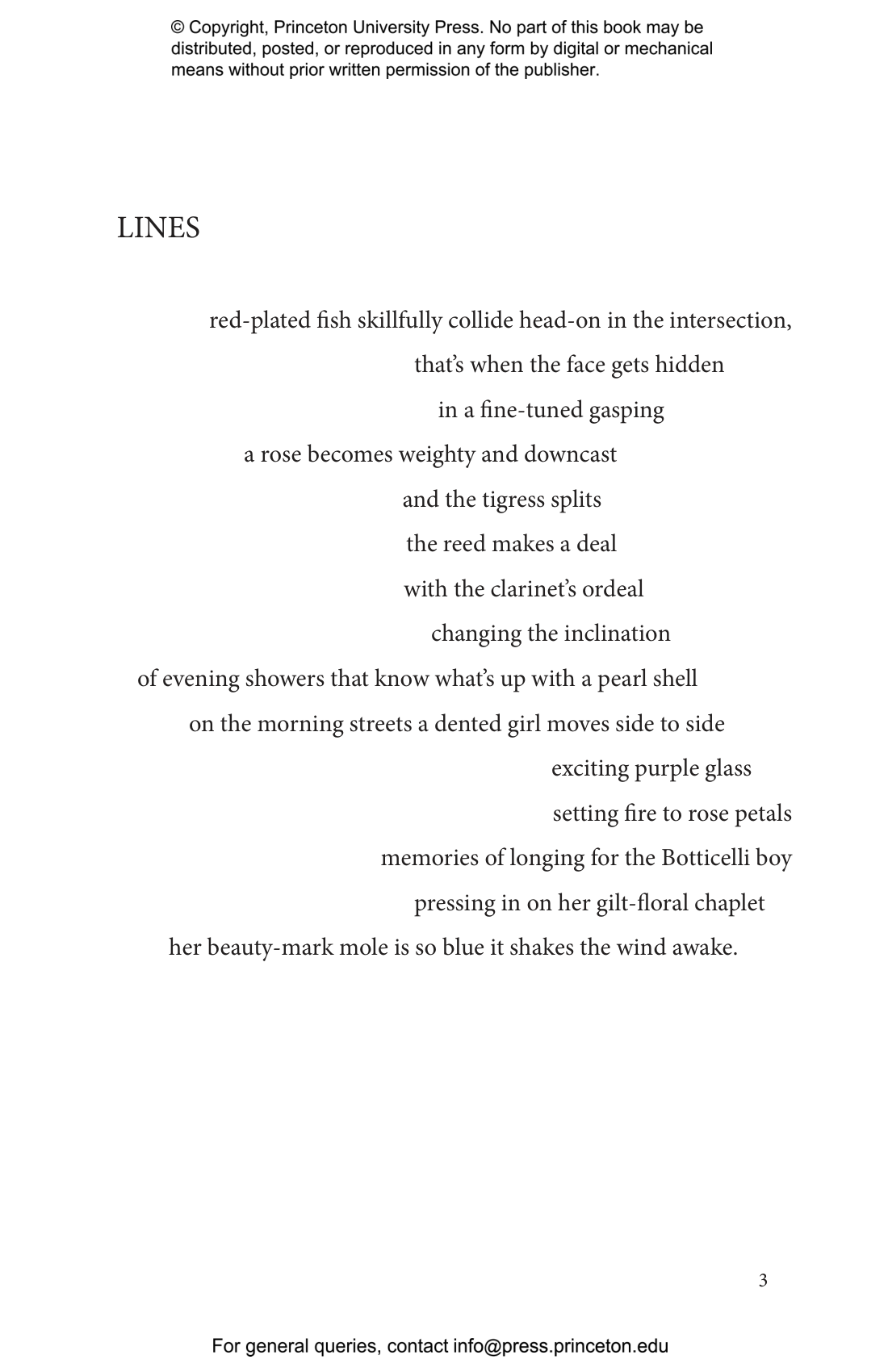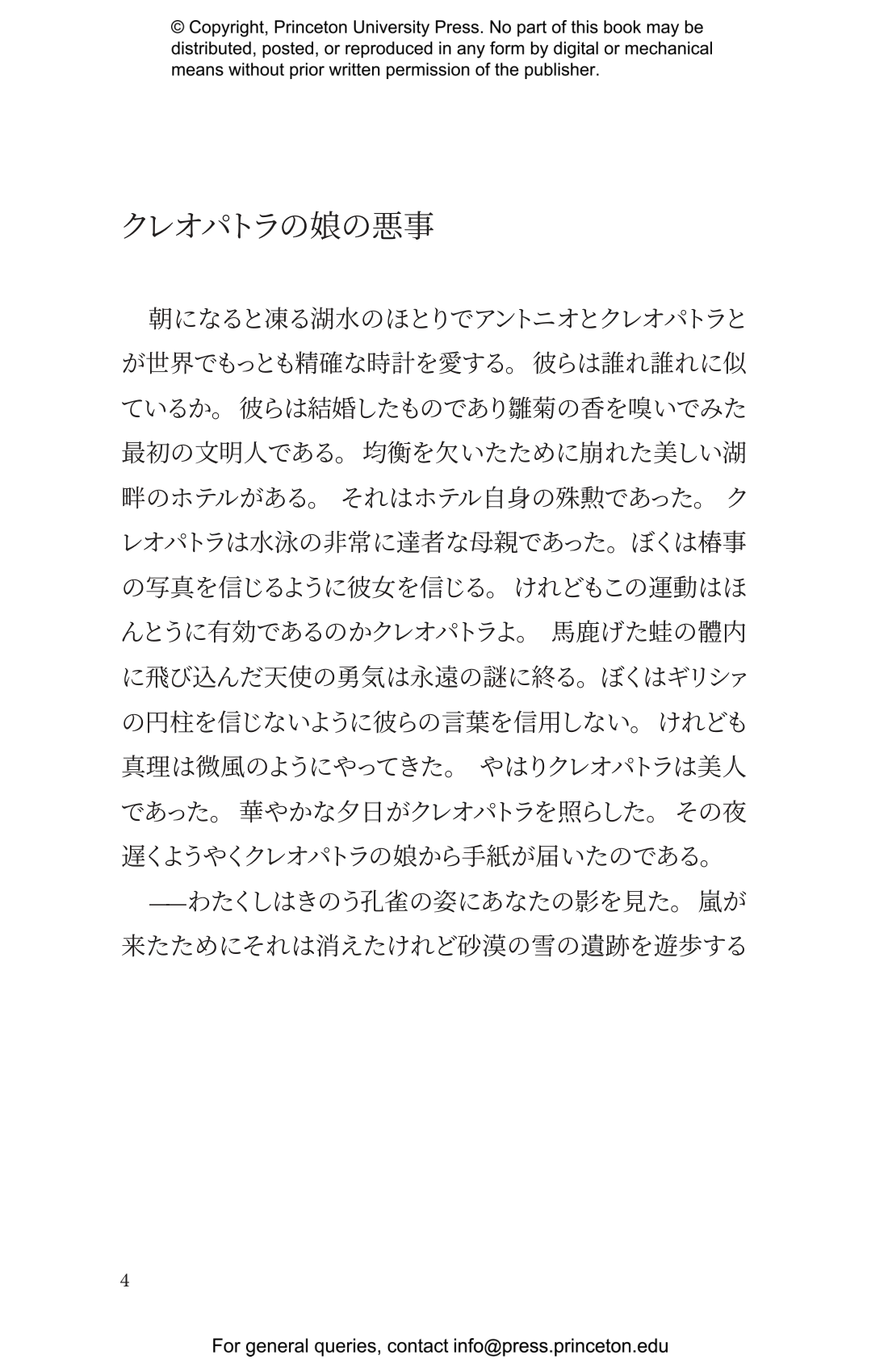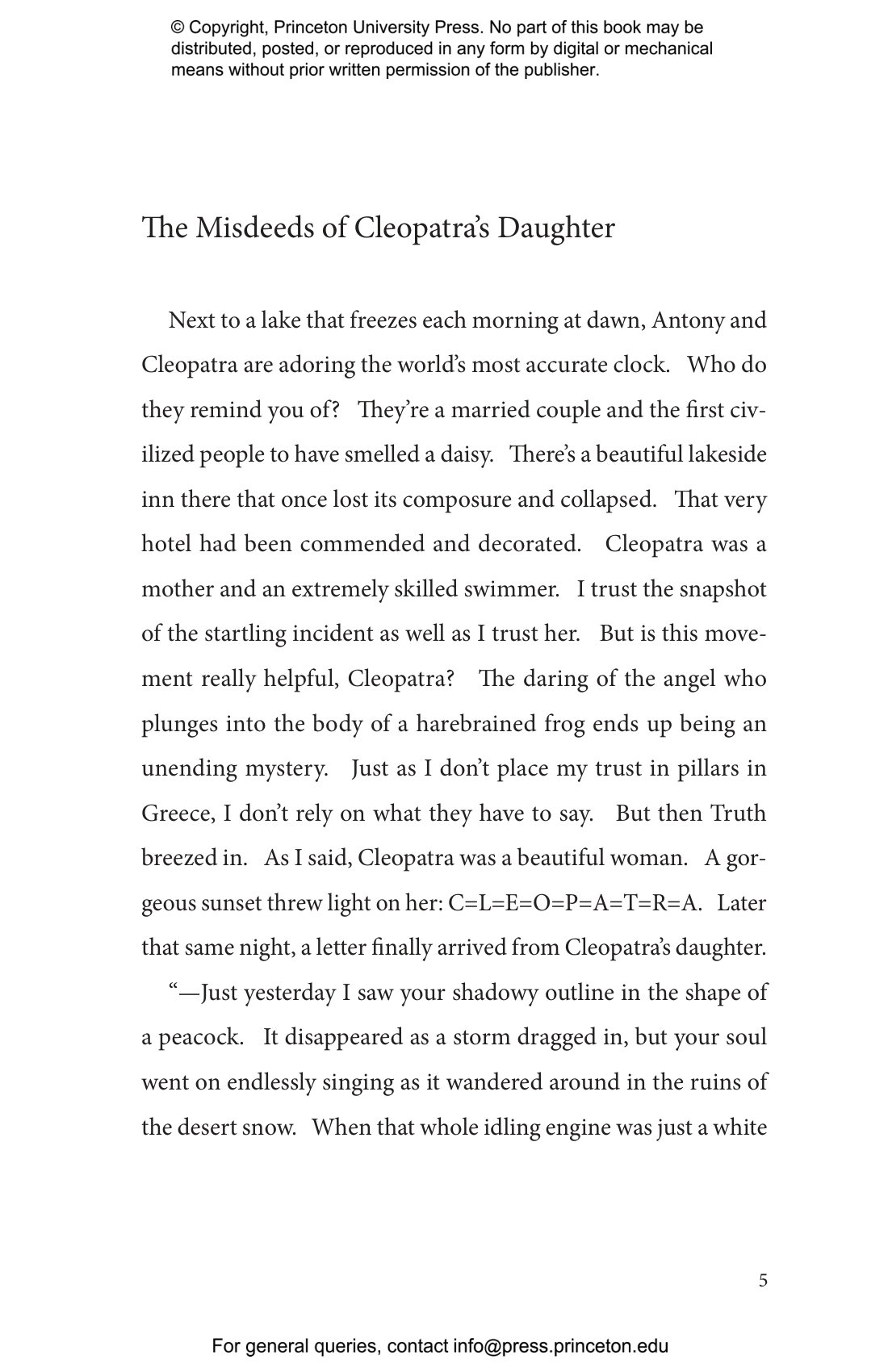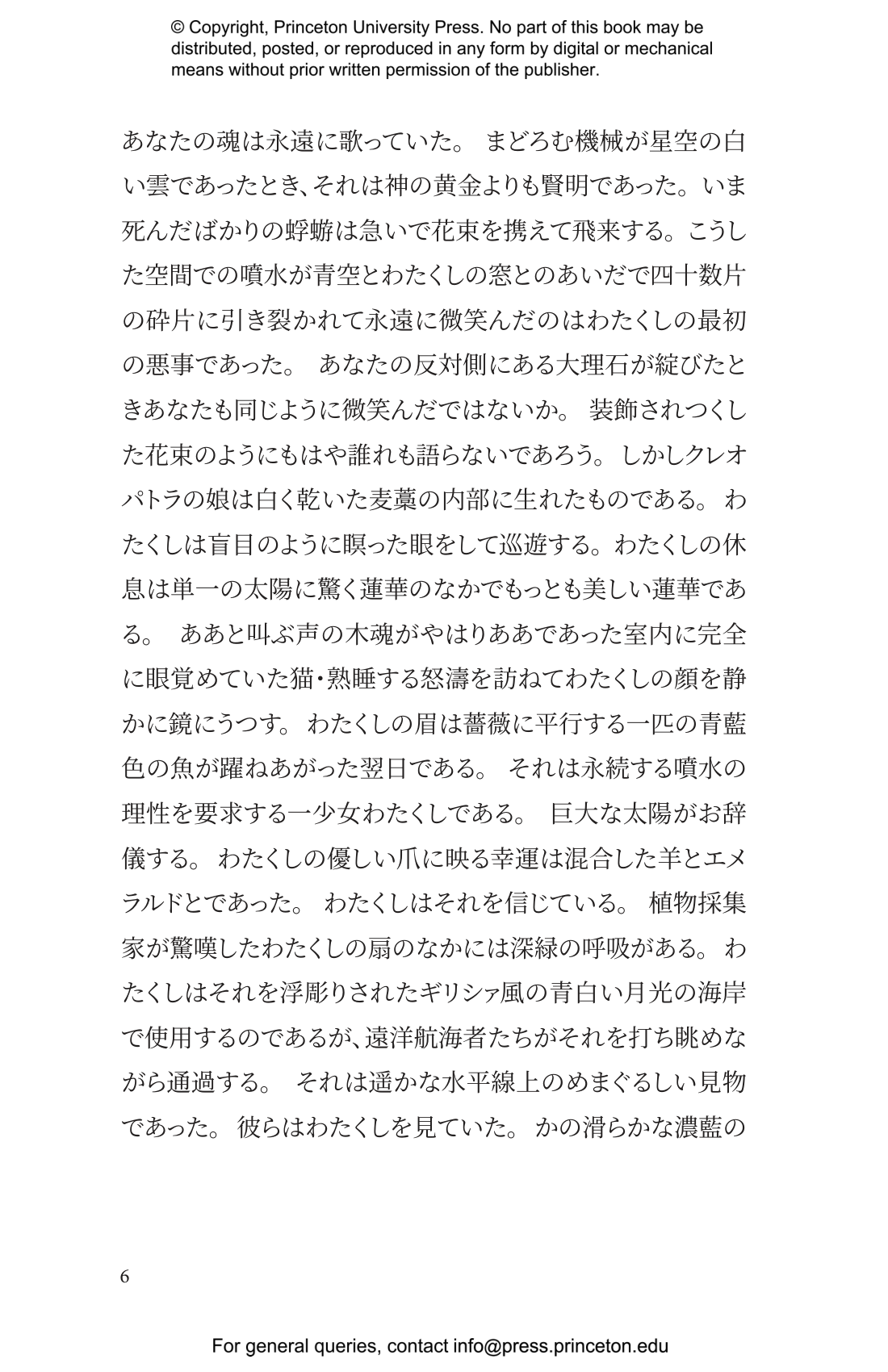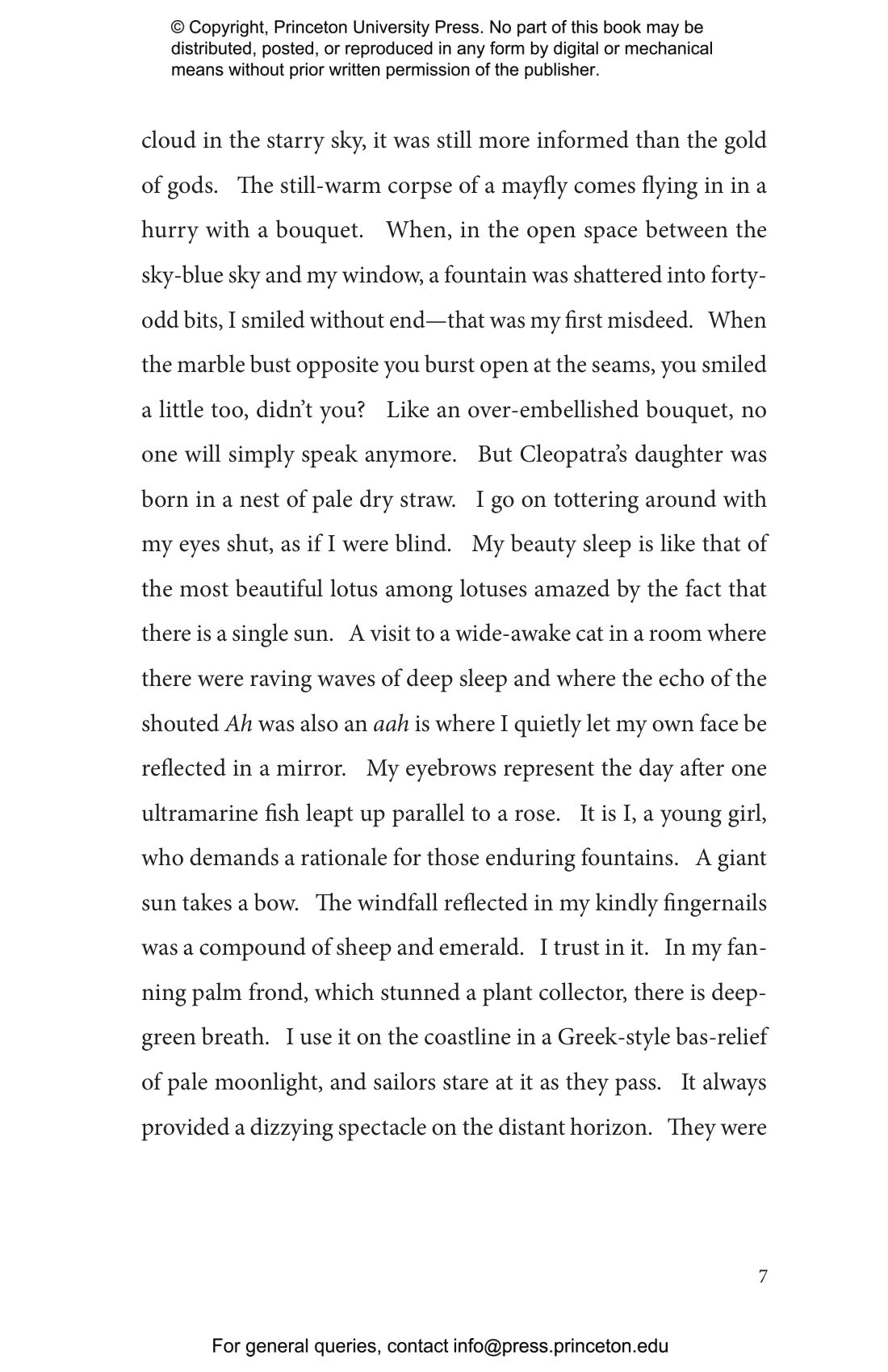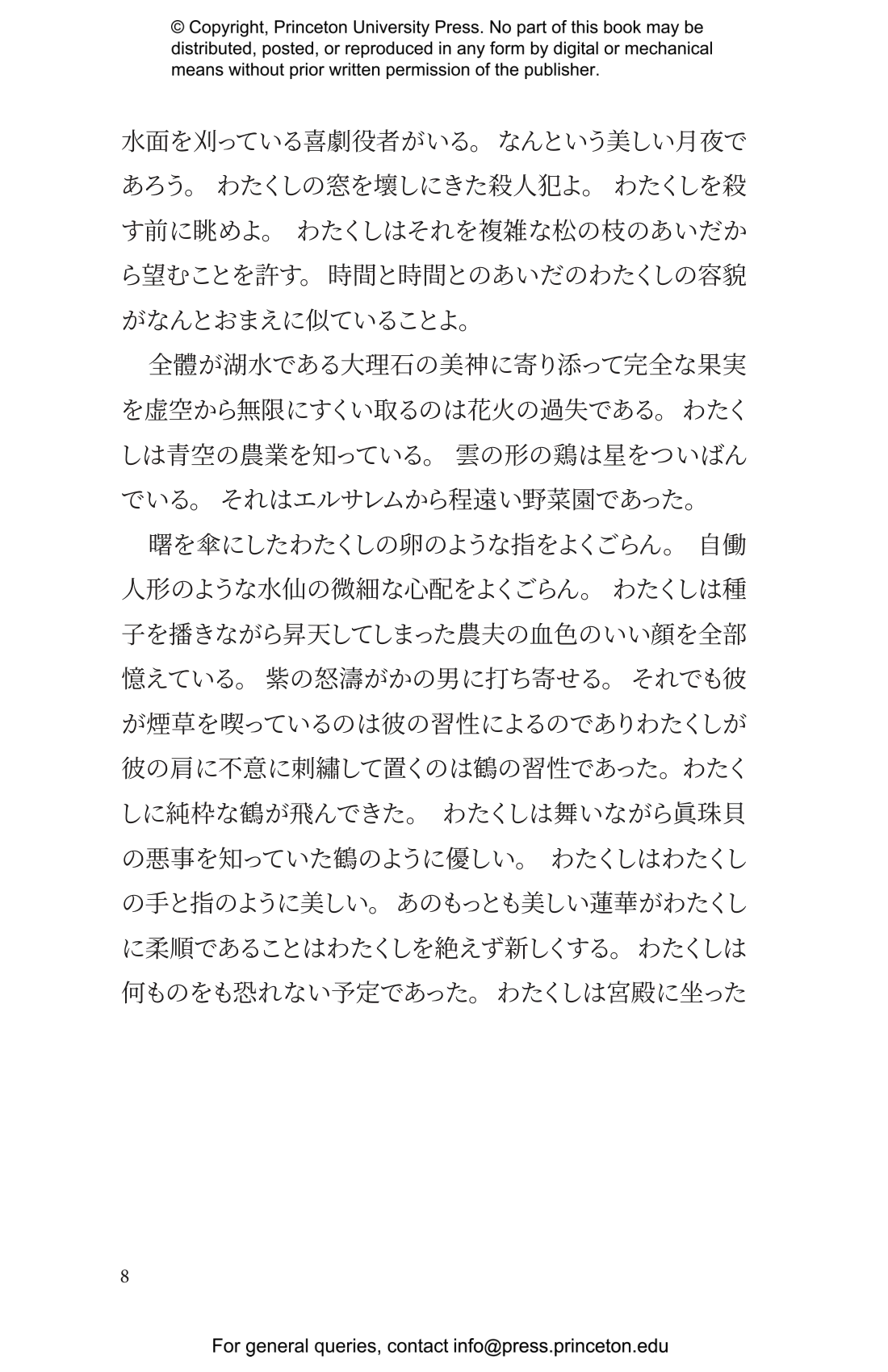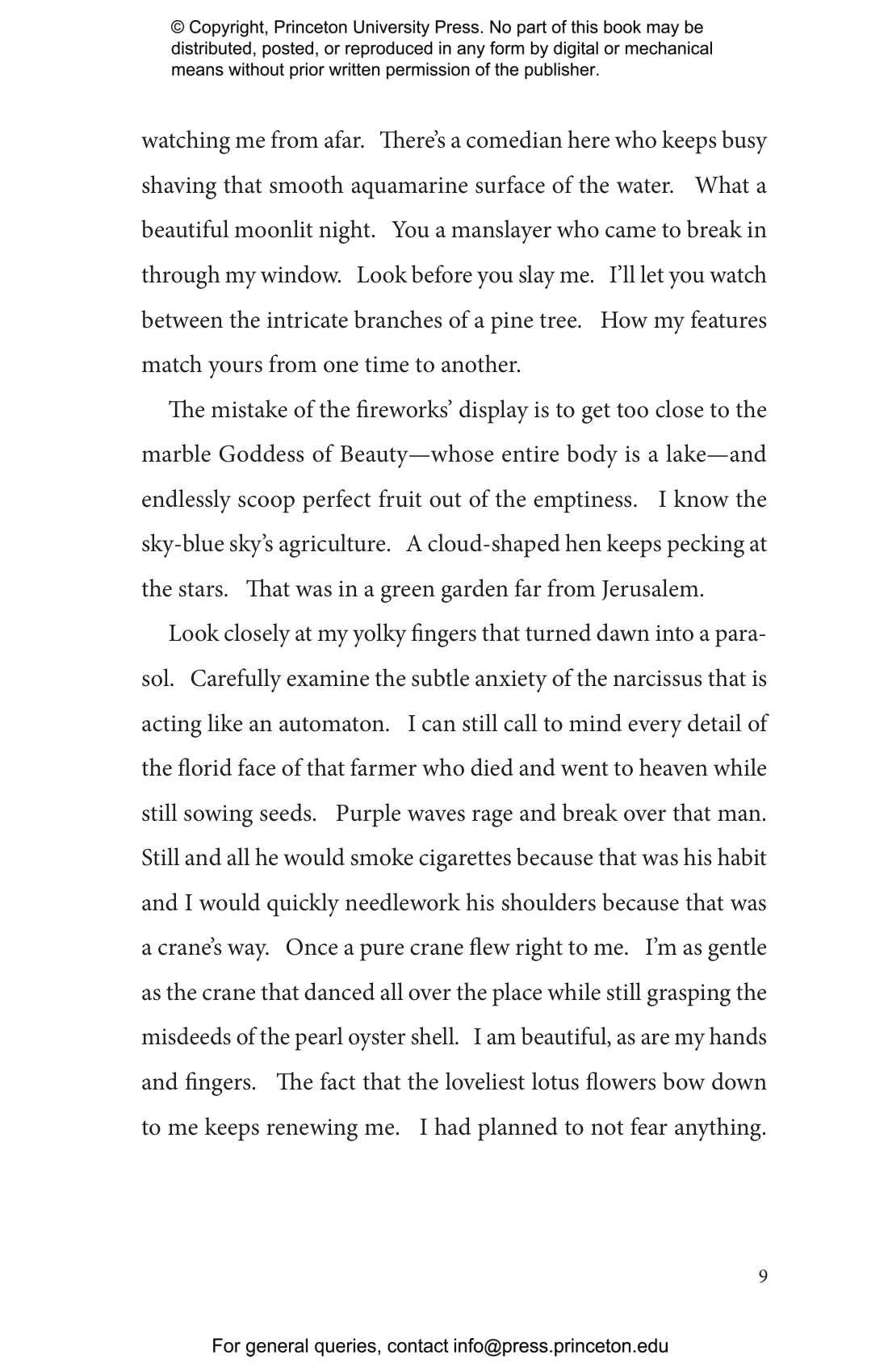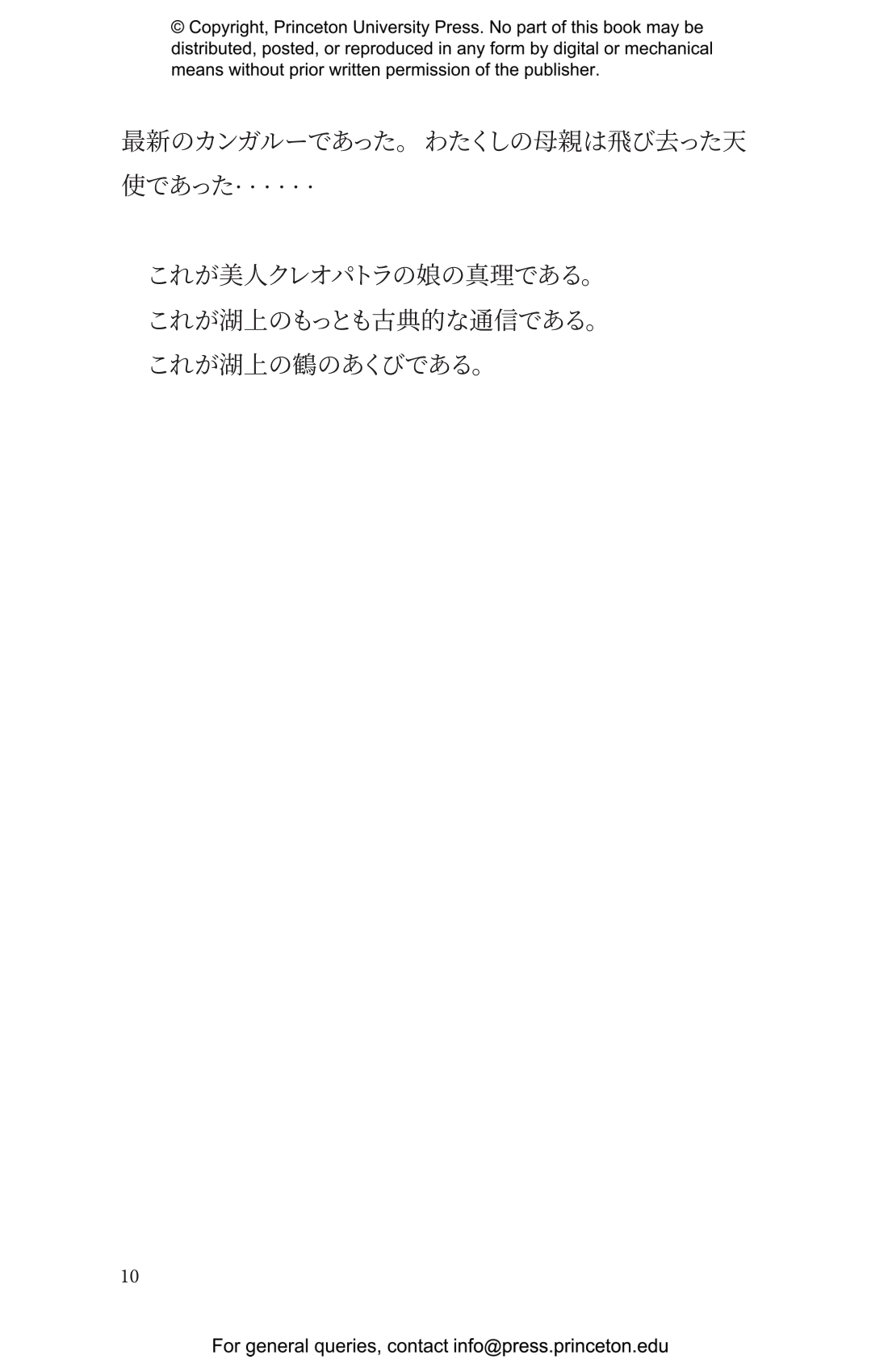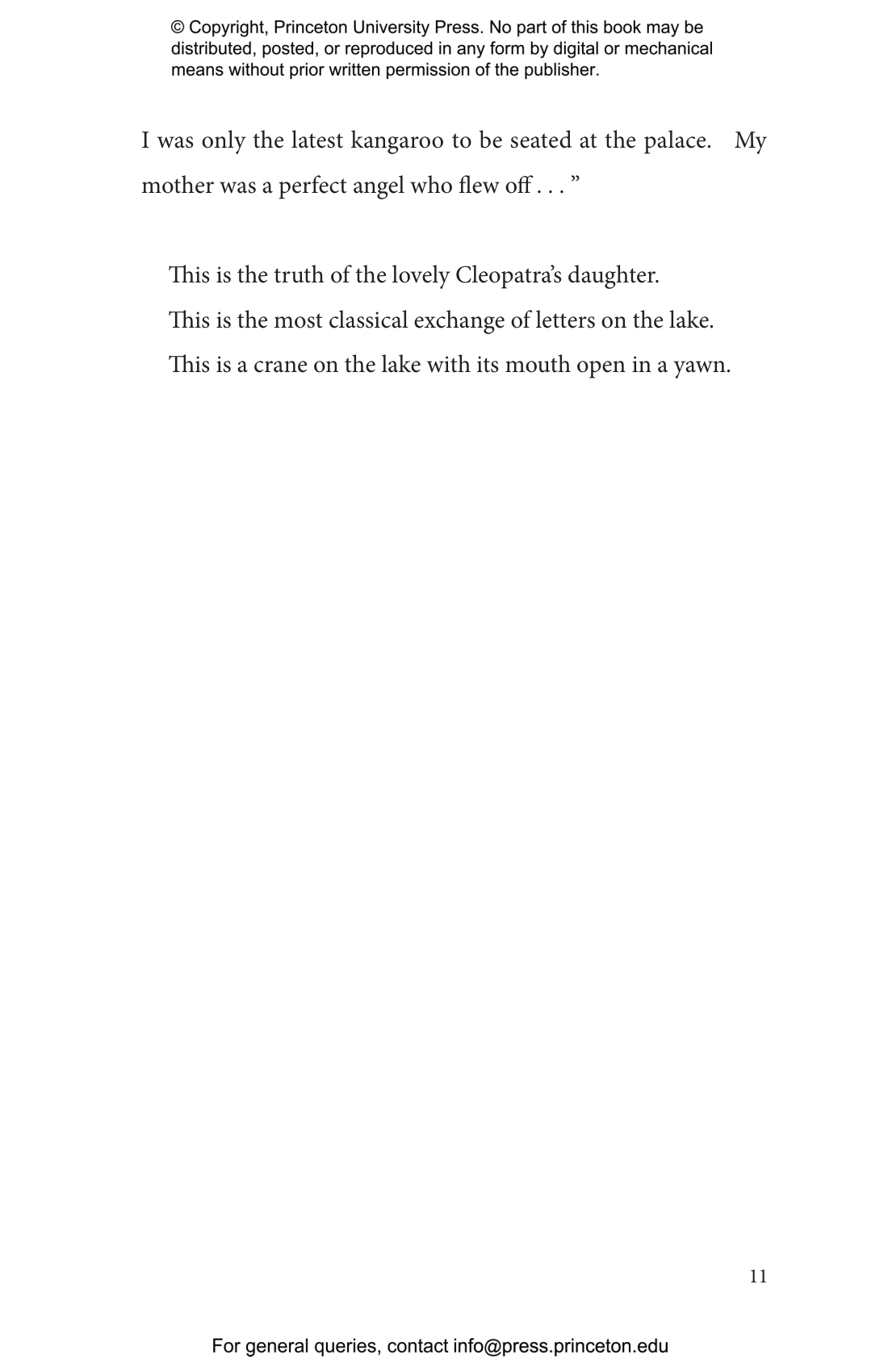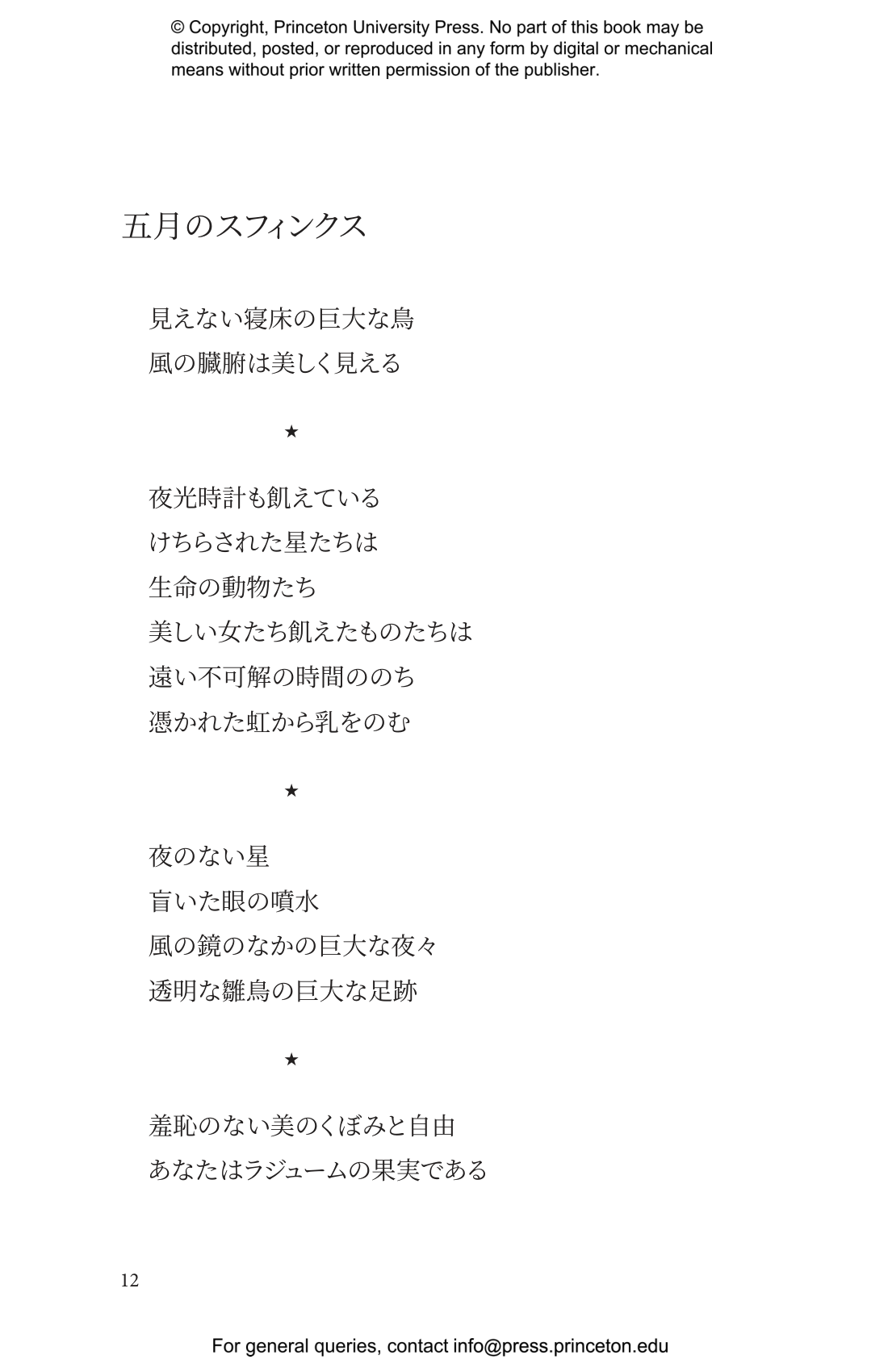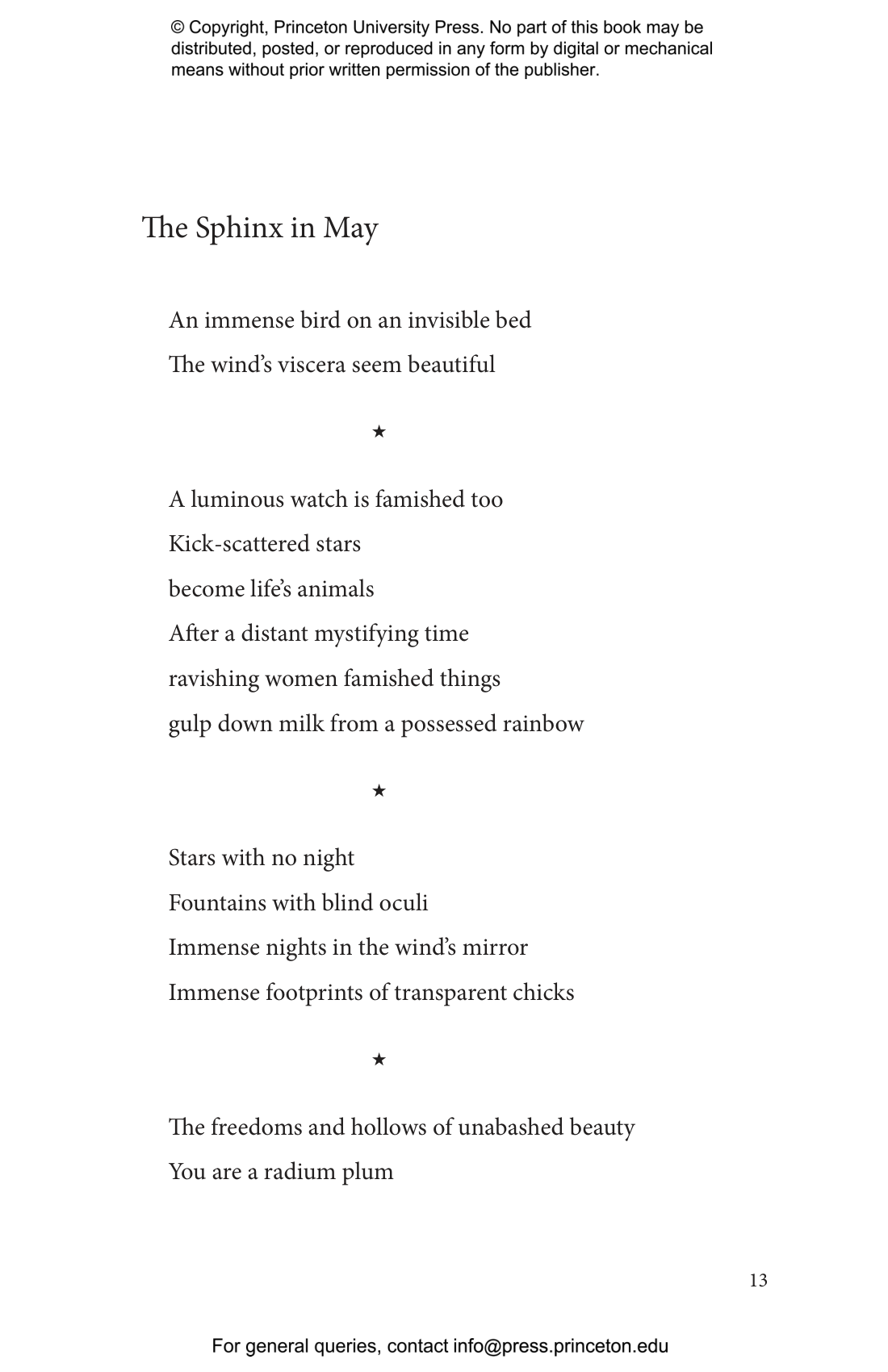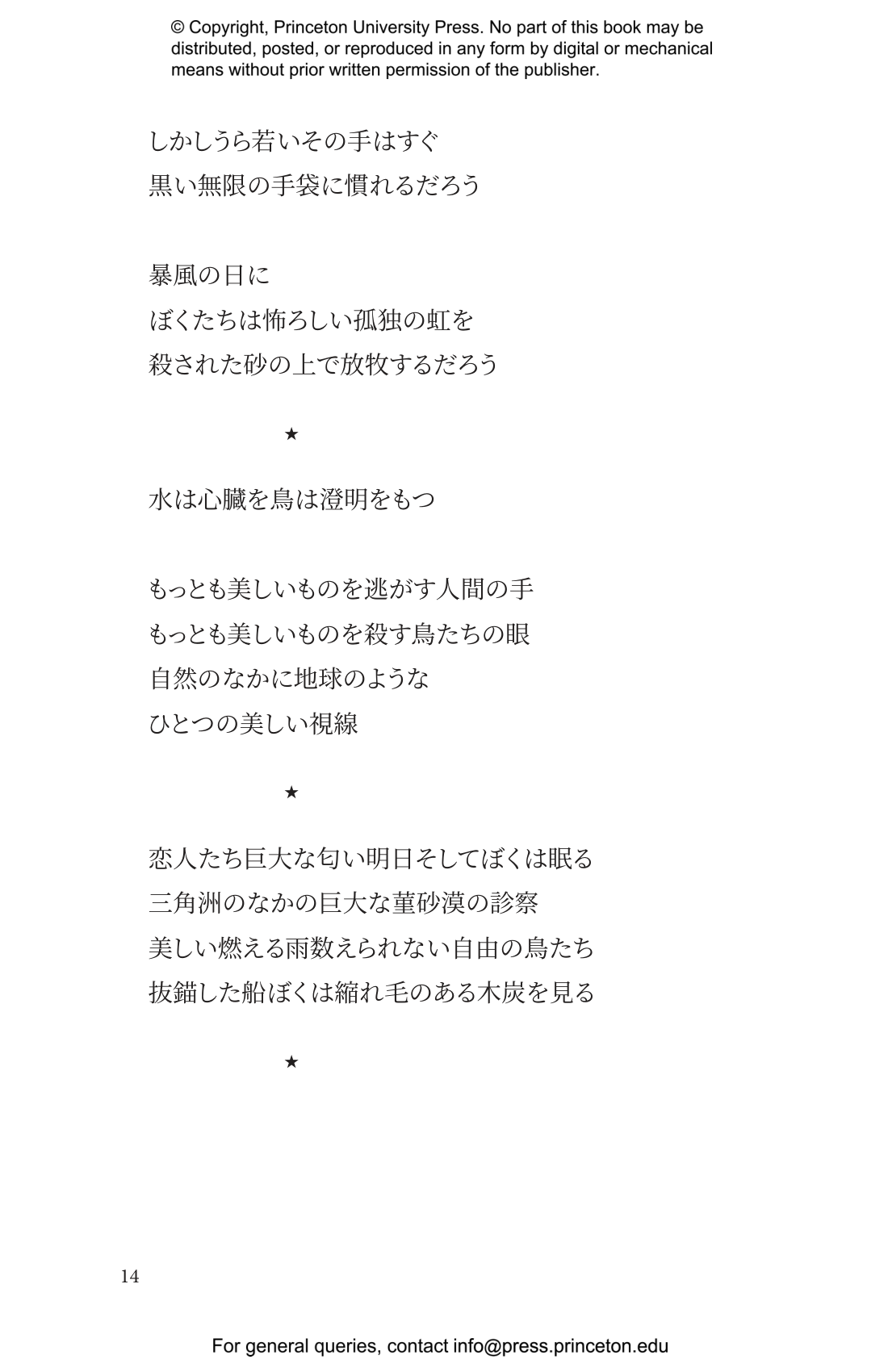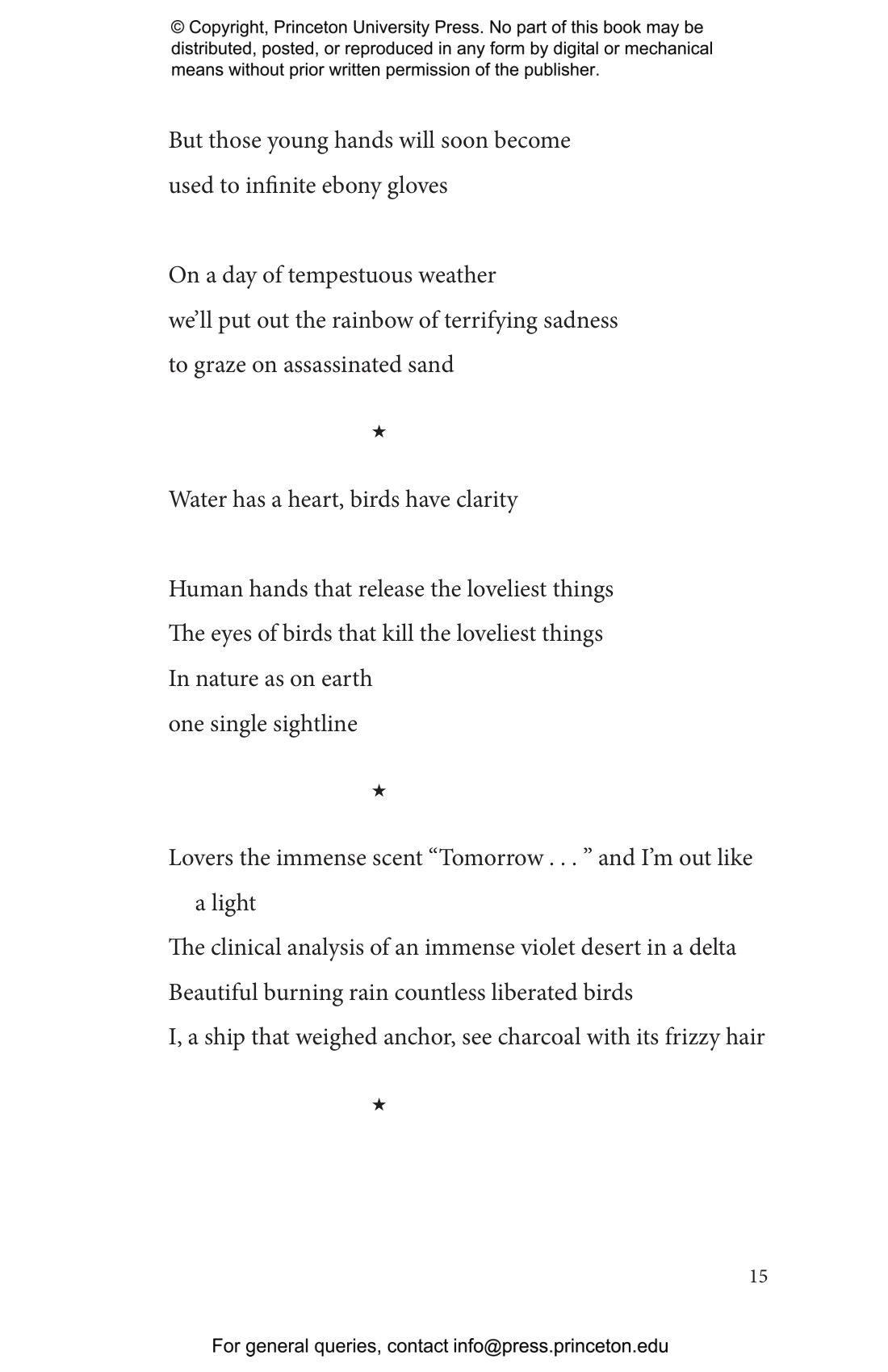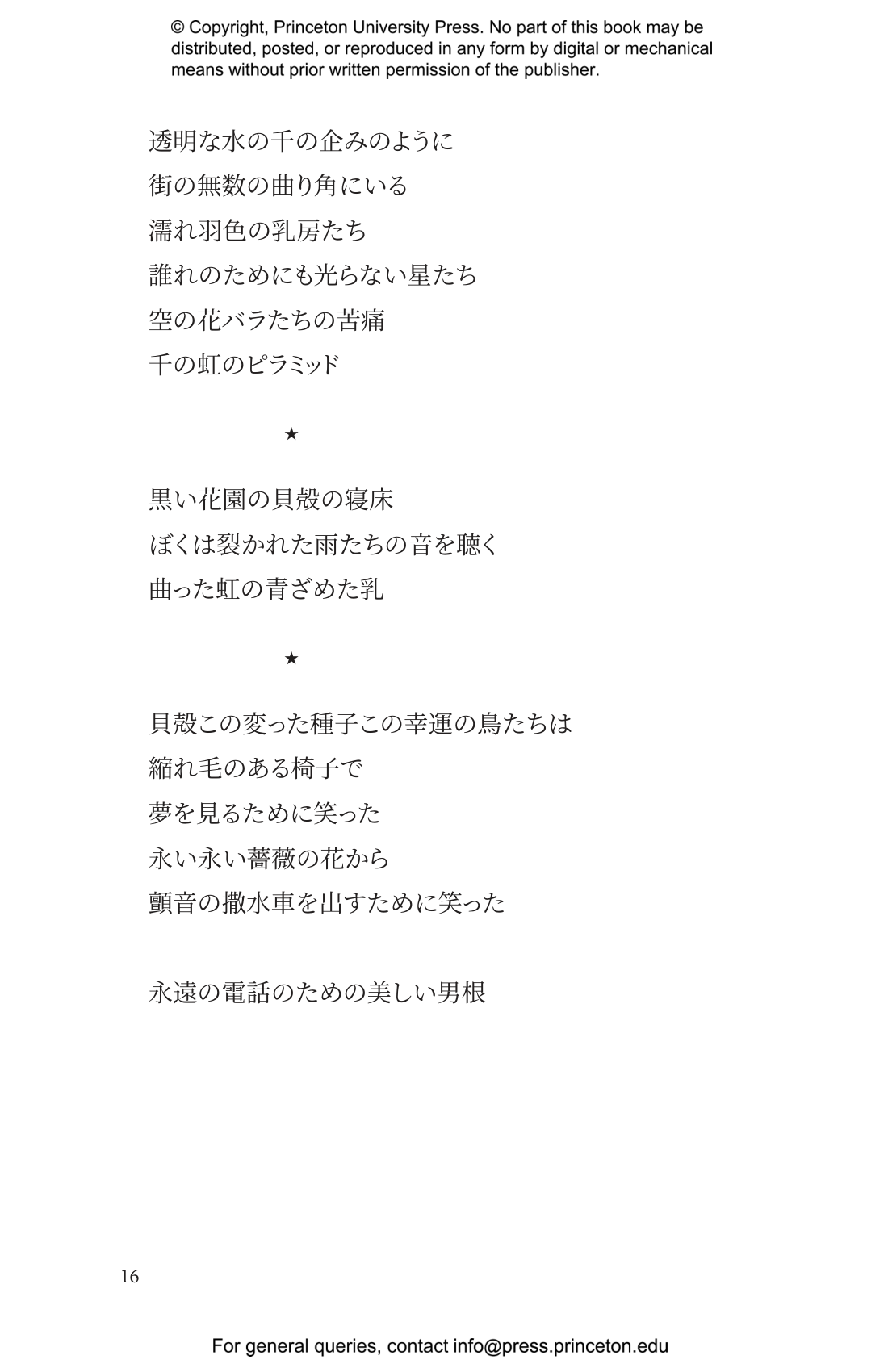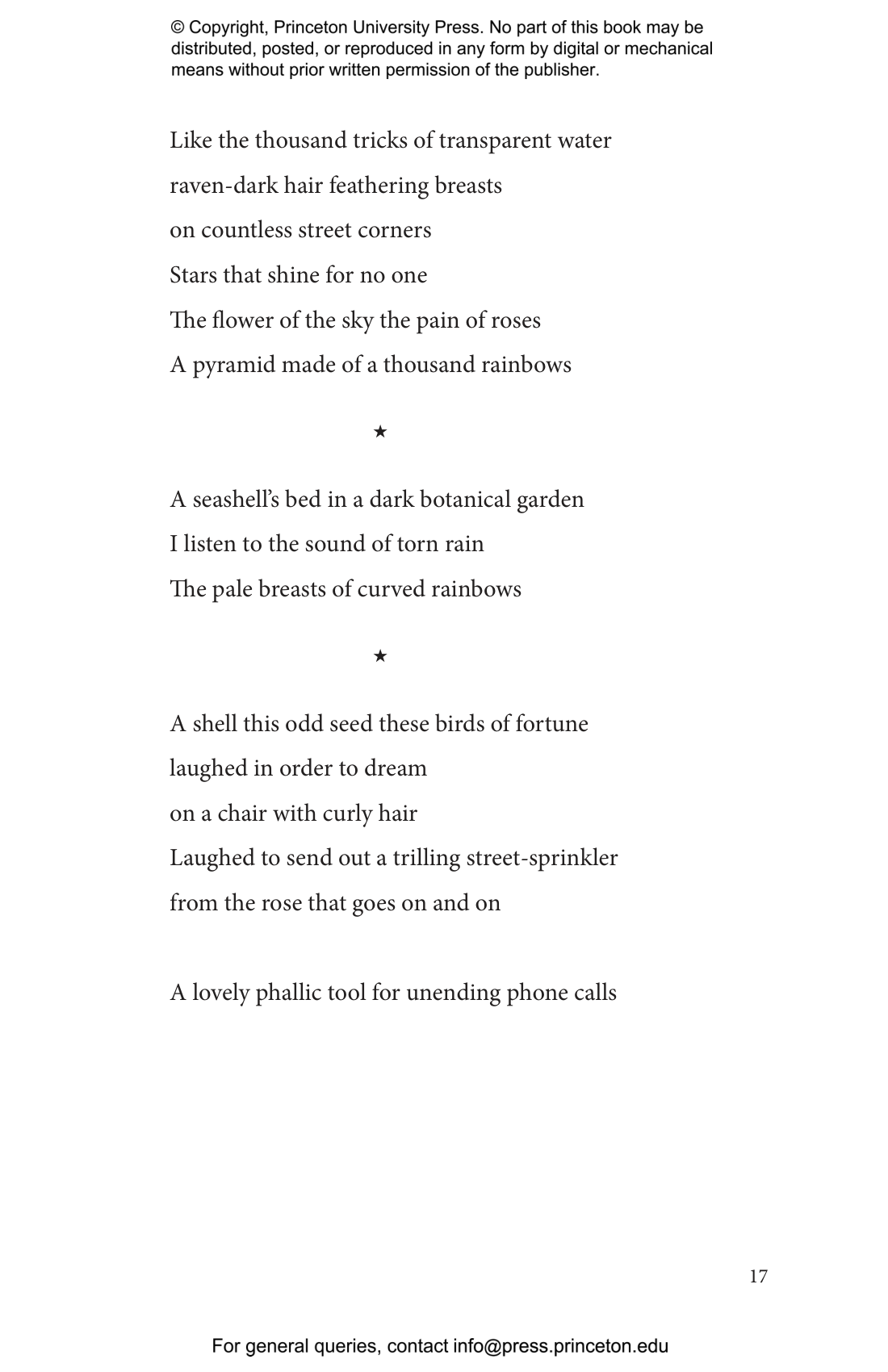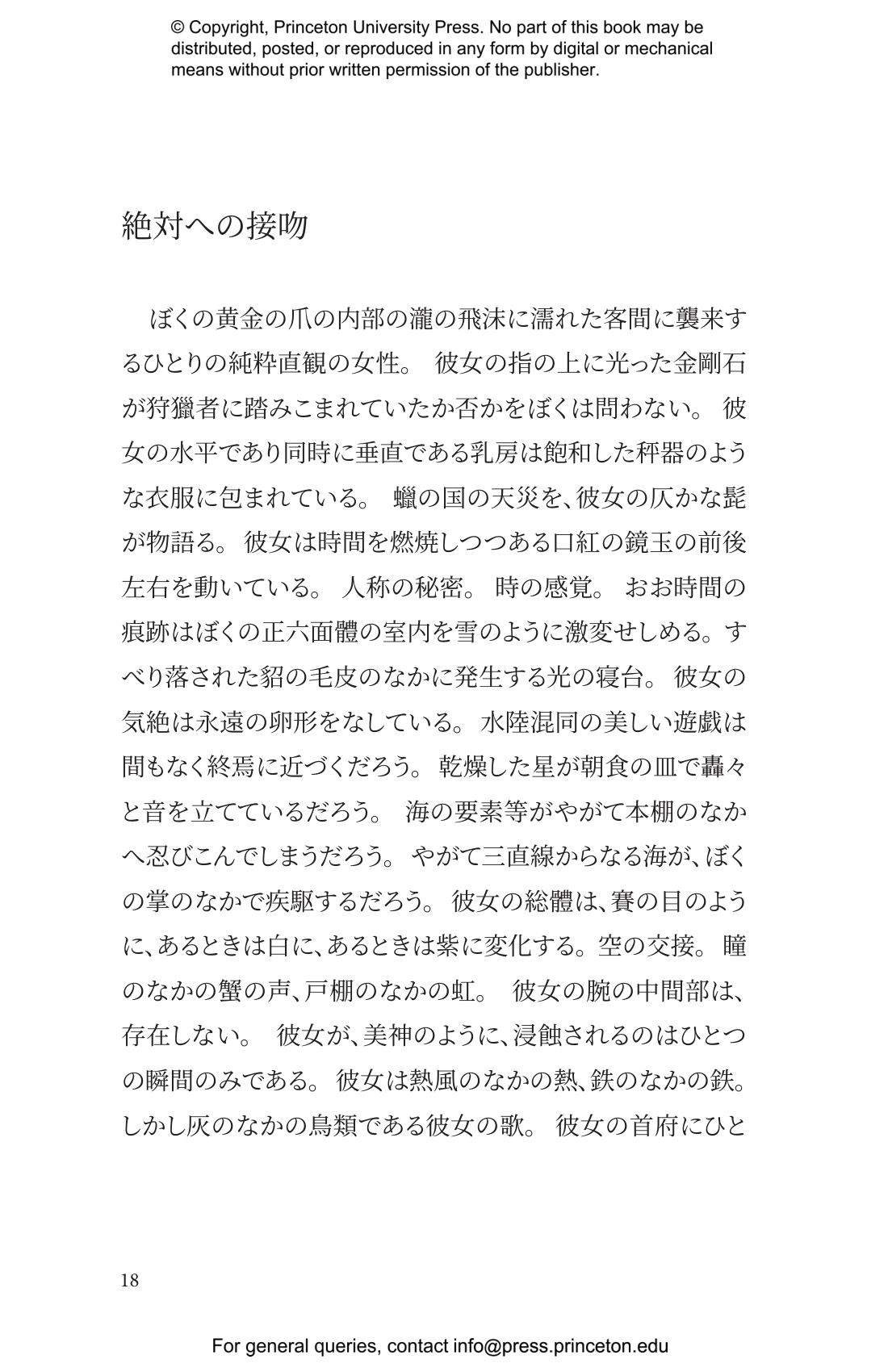In 1923, Shuzo Takiguchi’s first year at Tokyo’s Keio University was cut short by the Great Kanto Earthquake, which nearly destroyed the Japanese capital. When he returned to school two years later, he was hit by a second earthquake—French Surrealism. Takiguchi (1903–1979) began to write surrealist poems, translate surrealist writers, curate exhibitions of surrealist art, write art criticism, and, later, paint, helping introduce Surrealism to Japan. He eventually became a major Japanese artistic and cultural figure whose collected works number fourteen volumes. In A Kiss for the Absolute, Mary Jo Bang, winner of the National Book Critics Circle Award, and her fellow poet and translator Yuki Tanaka present the first collection in English of Takiguchi’s ingenious, playful, and erotic poems, complete with an introduction and the original Japanese texts on facing pages. Takiguchi’s obvious interest in style is perfectly wed to his daredevil rhetorical antics. His poems read as if they could have been written today, yet they are so original that they couldn’t have been written by anyone else. Bang and Tanaka’s skillful, colloquial translations offer English readers a long-overdue introduction to this important poet.
Mary Jo Bang is the author of nine books of poems, including A Film in Which I Play Everyone and Elegy, winner of the National Book Critics Circle Award. She has published translations of Dante and Matthias Göritz and is a professor of English at Washington University in St. Louis. Yuki Tanaka was born and raised in Japan and teaches at Hosei University in Tokyo. His debut poetry collection, Chronicle of Drifting, is forthcoming from Copper Canyon Press. He received an MFA from the University of Texas at Austin and a PhD in English from Washington University in St. Louis.
"A Kiss for the Absolute introduces Shuzo Takiguchi’s surreal, mythical world to English readers, inviting them into a poetic landscape where Japanese culture and French surrealism meet in a celebration of beauty, desire, and wonder. This collection is more than an introduction to Takiguchi’s poetry; it’s an invitation into a cultural and linguistic dialogue that feels deeply mysterious and illuminating."—Georgia McInnes, The Indiependent
“Shuzo Takiguchi’s chimeric fever dreams evince the soft brillings of a big big heart, one that is also elusive ‘like the thousand tricks of transparent water.’ Boldly written in a time and place—imperial Japan—where freedom of thought was most imperiled, and translated and collected into this beautiful volume, the poems document the transcendent capaciousness of a restless, passionate spirit. Time to discover anew this major Japanese Modernist poet.”—Sawako Nakayasu, translator of The Collected Poems of Chika Sagawa
“Takiguchi’s version of surrealism is ‘a public park of the retina.’ It has none of the mysticism and solemnity sometimes associated with this mode. His work is a playful, almost campy, flirtation with beauty—which he refuses to put on a pedestal. One object substitutes for another with a kind of giddy hilarity. He romps, in particular, with the icons of Western culture, pointing out ‘The eyes of a Virgin who is devoutly washing a cactus.’ I am happy to meet him.”—Rae Armantrout, Pulitzer Prize–winning poet and author of Go Figure
“The work of Shuzo Takiguchi, who used phonetic hiragana, katakana, and kanji to create startling images such as ‘Beautiful burning rain countless liberated birds,’ calls to mind both William Blake and László Moholy-Nagy. Bang and Tanaka’s adventurous translations stay faithful to Takiguchi’s original intent, inviting readers to navigate Takiguchi’s ‘labyrinth of air,’ where they’ll discover worlds both unfamiliar and alluring, made exquisite by the alchemy of these enchanting translations.”—Naoko Fujimoto, author of 09/09: Nine Japanese Female Poets / Nine Heian Waka
“Once again fascist forces trouble our sleep and once again a poet reminds us that the imagination is our resisting agent. A Kiss for the Absolute is a timely revelation of an intrepid surrealist, Shuzo Takiguchi, whose every poem plants a flag for pleasure, surprise, and freedom. ‘My miracle was to be pregnant with an enormous cluster of heavenly diamonds,’ he writes—and we’re lucky that Bang and Tanaka have worked this miracle into English.”—Dana Levin, author of Now Do You Know Where You Are


